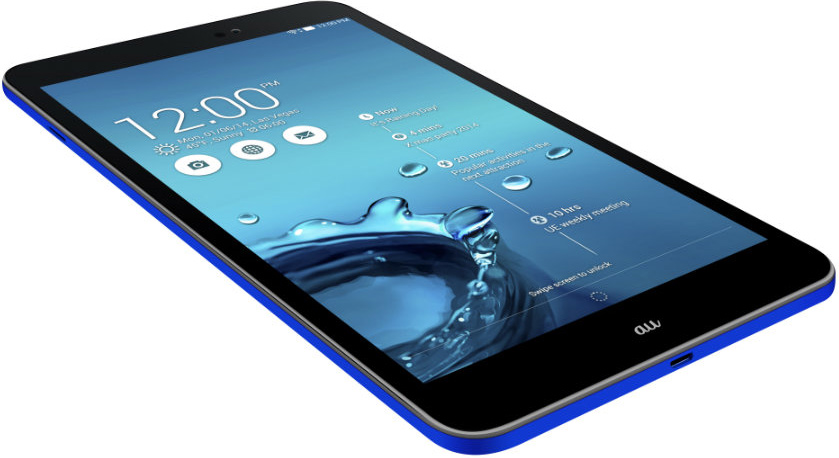Five years ago Sergei Brin, a co-founder of Google, said that over time the Android and the Chrome OS operating systems would become one. Since then the company has made a number of steps towards this goal and recently it made yet another one. The vice president of Android engineering will now also manage development of the Chrome OS.
Hiroshi Lockheimer, Google’s vice president of engineering for its Android mobile-operating system, is now also responsible for the engineering team behind Google’s Chrome operating system, reports the Wall Street Journal. While the company is not merging the engineering teams developing Android and Chrome OS, the new appointment once again proves that the two operating systems will eventually become one.
Google appointed Sundar Pichai to oversee both Android and Chrome OS business groups in 2013. At this year’s Google I/O conference Google unveiled initiative to run Android apps on Chrome OS. The new appointment will ensure that engineering/development of the two platforms will go in the same direction.
While both Android and Chrome OS are developed by Google, the operating systems are vastly different. Android powers smartphones, tablets as well as some other gadgets (and is optimized mostly for touchscreen input) and can be customized in many ways by hardware makers. The operating system powers the vast majority of smartphones on the planet and a huge share of media tablets. Chrome OS is designed for personal computers (and input from keyboard and mouse/touchpad) and it only can be customized or updated by Google itself. Only around 2 per cent of PCs sold today rely on Google’s Chrome OS.
Merging the two operating systems will significantly strengthen Google’s positions on the market of PCs and will allow it to create an ultimate eco-system of different devices running similar software. Given all the benefits that Google might get from an eco-system that spans from wearables to PCs, TVs and cars, all the potential problems associated with merging the two OSs do not seem to be important.
Google did not comment on the news-story and did not confirm the appointment.
Discuss on our Facebook page, HERE.
KitGuru Says: While it is obvious that Android and Chrome OS will become one platform, the question is when Google plans to make this happen. It is also interesting to note that Google's move looks similar to Microsoft's decision to use Windows on all devices, from smartphones to workstations.
 KitGuru KitGuru.net – Tech News | Hardware News | Hardware Reviews | IOS | Mobile | Gaming | Graphics Cards
KitGuru KitGuru.net – Tech News | Hardware News | Hardware Reviews | IOS | Mobile | Gaming | Graphics Cards




Except, from our perspective, merging ChromeOS and Android seems to be a good idea, all in all. Creating a unified Windows, conversely, appears to be a monumentally stupid idea, again from our perspective.
Your comparison doesn’t work here. The problem for your argument is that windows is used on a multitude of devices, and, yes, if you tried unifying that by force, people won’t like it. On the other hand, android and chrome OS are already two fairly similar operating systems. They’re both mainly used for mobile, and merging them only makes sense.
Nope! While being based on the Linux kernel is the commonality here. That is where the functionality stops as far as users are concerned (and developers too for that matter!). The execution environment is so different it might just as well be a different OS which it actually is at this point. No arguments here.
Android needs to eclipse Chrome. Chrome was a stupid idea with just a simple concept which is novel at the time. Yeah, all Cloud based. But no all people want “all cloud” based nor can some users have cloud access in some or most circumstances. The use of local storage and local processing is a need that will not go away until the Internet is as free as the air we breath!!!!.
Android emulating Chrome in a box makes sense and is easier to do while Android is extended in terms of non-tablet usage. Not to compare or contrast the MS model which is windows everywhere. But windows do not work well on phones nor tablets and the metaphor of usage has changed. It has evolved into the phone centric of IOS, ICS/JB/KK, WP model which are almost identical save for a few choices. A laptop will never get into such a mode unless a new input method has been created that is not screen based but gesture based on an extended touchpad below the keyboard, to be so natural that users will intuitively use it and find it similar to the tablet/phone model (again no touch screen, ie gesture based).
Merging OS functionality is different from merging OS code-base. Merging both is going to be a disaster. Embedding one into the other might be a good compromise…. but it is not merging, is it ?.
,
fteoOpty64 has taken about 90% of my argument, but there’s more to say. The comparison works simply because both companies are trying to merge to OS’s for similar reasons – and primarily, it works because it wasn’t me who made it but Anton (“Google’s move looks similar to Microsoft’s decision to use Windows on all devices”). This was a response.
Anyway, in addition to fteo, I’d like to add that there’s also the issue of markets: ChromeOS is a tiny portion of the PC market, and so starting with a touchscreen based OS and merging a desktop OS into it will work better for the majority of users. In other words, it will allow the advantages of unity (like app compatibility, seamless transitioning between devices), and there won’t be a sense that this will be forced on users who just want a desktop (because those users probably wouldn’t have bought the niche OS in the first place). Windows is different because of its market share and dominance, added to the typical user base and type. Yes, Windows is used on a variety of devices. However, MS’s market share in the phone and tablet segment is as small as Google’s is in the desktop. The majority of instances of Windows by a *long* way just need to work really efficiently for professional use. They don’t need to work with tablets really, or have any of that crap, they just need to work and be easily usable for a varied demographic in age, type of user, familiarity with tech, etc. What really should happen with MS is that they should be making different versions of Windows with the same basic foundations, so that the UI appears unified (but isn’t the same – it would be tailored for each device), apps can work on the different OS’s but in different ways (this wouldn’t be hard), and coding/developing for each OS would be reasonably similar. The end point though would be something more like windows 7 for desktops, something more like Android for phones and tablets/touchscreen laptops.
My point was that the decision of both companies to merge only appears to be similar. In actuality, it makes sense for Google and it does not for MS.
I think this is inevitable for them all.
It would make life much easy for its developers.
http://www.latesttoptechnews.com
I’m pretty sure the Chrome OS will be a good challenger for the OS market 2 years later…